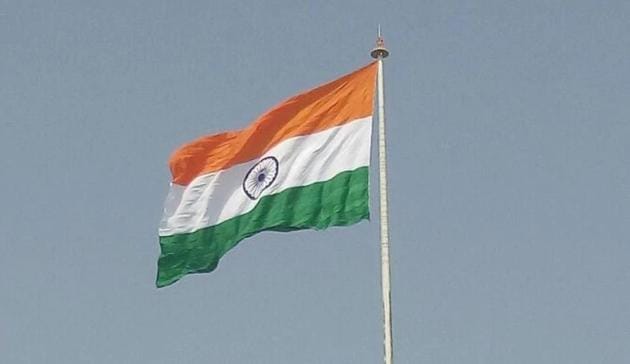Freedom through the dark clouds this Independence Day
Depending on which side of the political divide one stands, the last ten days have been cause for grand celebration at the “integration” of Jammu & Kashmir or immense distress at the purpose and manner of it all.
On the 73rd Independence Day, the Indian tri-colour will be hoisted at the Red Fort and Prime Minister Narendra Modi will address the nation. In the national capital and at millions of locations across the country, flag hoisting will be followed by fervent singing of the national anthem, children earnestly reading the pledge, and the usual bonhomie. The rituals unroll on expected lines. Yet, this Independence Day throws up questions: What to celebrate as freedom and how to celebrate it.

Mumbai’s streets had witnessed a spontaneous outpouring of joyous crowds of men, women and children on August 15, 1947, singing the songs of freedom struggle, hooting and honking, distributing sweets and joining victory rallies, according to news reports of the time. Public transport had been declared free for three days, schools and colleges had declared holidays, mills and markets commemorated the day, and government buildings were lit up. That celebration can’t be replicated but what do we celebrate today?
Depending on which side of the political divide one stands, the last ten days have been cause for grand celebration at the “integration” of Jammu & Kashmir or immense distress at the purpose and manner of it all. Ten days after Article 370 of the Constitution was divested of its authority and the state was bifurcated, millions in the newly created Union Territories – especially in Kashmir – continue to not have basic freedoms. Their stories of living under a curfew, protests which turned violent, protestors hit with pellet guns, young boys being picked up, and so on reach us despite a virtual information blackout. Indians there who spoke for the Constitution are detained for days – without charges.
Sections of the Indian media, whose history is symbiotically tied with that of India’s freedom struggle and is replete with glorious contributions to it, have aligned closely with power instead of holding it to account. Do they not have the freedom to be the watchdogs they were meant to be? Or have they willingly abdicated the role? Where’s the independence of mind that the fledgling Indian press had shown in the late 19th and 20th centuries, when the British clamped down with multiple laws and regulations to prevent it from speaking the truth?
Lakhs of people have lost jobs, millions aren’t finding any, economic slowdown is now a thing even in non-economic debates, indices of production and sales and loans are depressing, investment is not quite what it was made out to be. The squeeze is beginning to be felt, most of all by those at the bottom of the pyramid who, as an industry leader remarked, are thinking twice about spending ₹5 on a packet of biscuits. What and how should they celebrate today?
Elsewhere, lakhs of people have been flooded out of their homes and businesses, with only western Maharashtra seeing a displacement of nearly five lakh. Floods came on the back of incessant rain but also, as experts have pointed out, from mismanagement of water and dam reservoir levels. The displaced were done in by the very government which was constitutionally bound to work for their welfare. Mumbai’s flood this year was no less worrying.
Speaking at the Red Fort on the morning of August 16, 1947, Prime Minister Jawaharlal Nehru had said: “We have gathered here on a historic occasion at this ancient fort to win back what was ours”. In the new India, where it’s possible to be in power despite losing an election thanks to a vibrant market for elected representatives, where it’s not shocking that Constitutional norms and freedoms can be made to vanish in minutes, where environmental concerns are tailored to fit a television show rather than to protect standing forests and flowing rivers, where mobs deliver “justice” in blood but are acquitted by courts, where dissent is a dirty word again, where the dawn is marked by dark clouds, how do we begin to win back what was ours?
But, win, we must. If your eyes turn moist when the flag flutters high and voice trembles while singing the national anthem, you know which side of the divide you are on.

Stay updated with all the Breaking News and Latest News from Mumbai. Click here for comprehensive coverage of top Cities including Bengaluru, Delhi, Hyderabad, and more across India along with Stay informed on the latest happenings in World News.
Stay updated with all the Breaking News and Latest News from Mumbai. Click here for comprehensive coverage of top Cities including Bengaluru, Delhi, Hyderabad, and more across India along with Stay informed on the latest happenings in World News.





